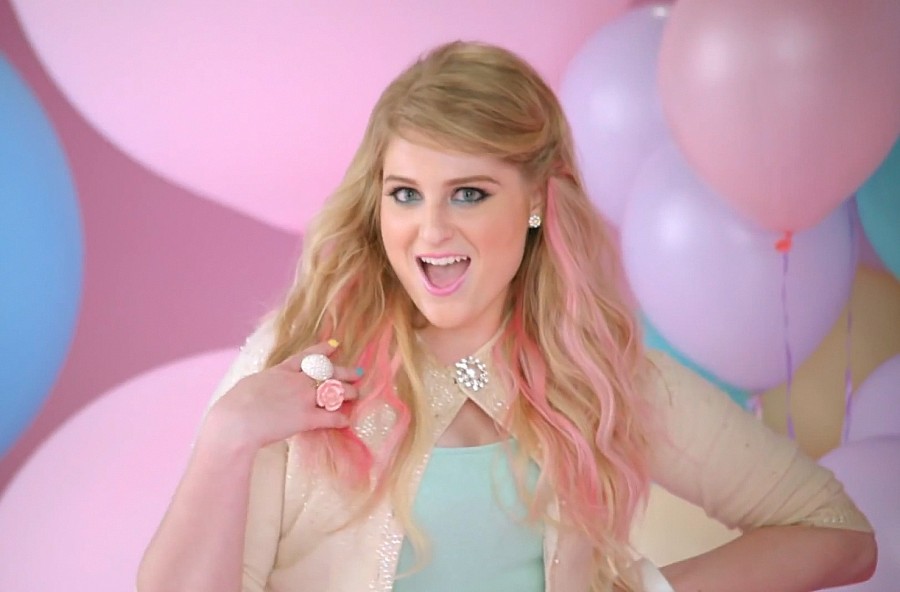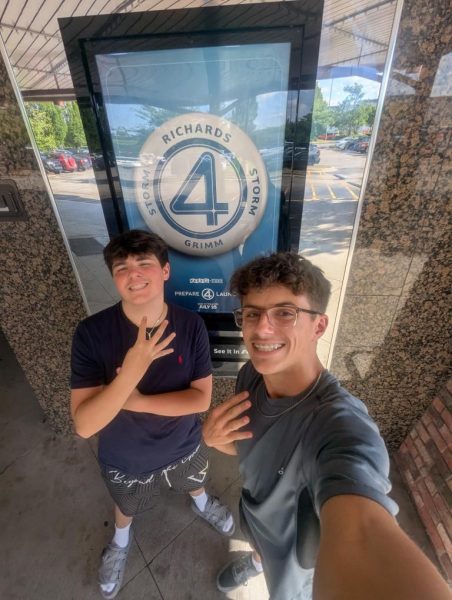I’m not “All About That Bass.” You shouldn’t be, either.
Let’s talk about Meghan Trainor. Let’s talk about butts.
’All About That Bass’ reinforces the idea that female bodies exist for men’s pleasure, and that being desired by a man is crucial to a woman’s self-worth. It says it’s all about that bass, but it seems it’s really all about the boys.” – L.V. Anderson, Slate Magazine
Preamble
So, here’s how it goes – Katy Perry is no Aristotle.
Ke$ha’s manifestos cannot be equated to that of your pastor.
Pop music, the anti-establishment anathema, is no acceptable moral compass, no substitution for good judgment. But isn’t it true that pop culture is terribly pervasive, that those earworms are insidious as ever? The Western world and I have a complicated relationship with pop, but we listen. We listen, and we absorb. Furthermore, once we absorb, we make the mistake of throwing words around — like “role model,” for instance.
Let’s talk about Meghan Trainor.
Let’s talk about butts.
Enter “All About That Bass.”
To quote the eloquence of Wikipedia: “All About That Bass” is the debut single by American singer-songwriter Meghan Trainor.”
What it neglects to mention is that “All About That Bass,” a sugary doo-wop song about comfort in a plus sized body, is a cruel, cruel joke in the name of self-love. Marketing itself as an acceptance anthem, it features lines that do anything but promote that – for instance, “I’m bringin’ booty back/ Go ‘head and tell them skinny b-es that.” The only lines it manages to save itself with are less concerned with the value of appreciating oneself and more with the value of being appreciated by men.
The issue with this, of course, is that women have taken hold of “All About That Bass” and waved it gleefully like a flag of victory on the virgin soil of confidence. But the song promotes less positivity than it does misogyny and unfettered competition amongst women.
And before assuming I’m simply skinny and butthurt (pardon the pun), let’s cease fire and take a stroll down this argument’s Legitimacy Lane.
Sexism, Pt. l – Objectification
“My momma, she told me, don’t worry about your size/ She said boys like a little more booty to hold at night…”
To some extent, the sexes are naturally inclined to seek validation from each other – however, this tends not to be actively encouraged behavior, and, furthermore, tends to be harder on women than men.
To quote Huffington Post’s Mohadesa Najumi, “Not only do most women feel physically inadequate, but we are constantly silenced and trivialised. The great documentary ‘Miss Representation’ highlights how women are terrorised from their teen years into their adulthood through the realms of mass media and popular culture.”
And while it might be true that there is a certain burden of responsibility on the individual to remove the poison of those detrimental influences, how can one possibly remove them all? How can one constantly wrestle with the sound of pop culture, something that sings and sings and sings through every outlet it can…
I can’t.
Consider a notion we widely accept – Catcalling is offensive. Lewd jokes and comments about women, particularly from strangers, are offensive.
And yet, the lines “I got that boom boom that all the boys chasin’/All the right junk in all the right places” and “Boys like a little more booty to hold at night” invite objectification. Meghan suggests that the primary reason a plus sized woman should be confident about her body is that men enjoy it, and that thin women are inadequate because they don’t have all the right junk in all the right places.
And while it’s certainly not Meghan Trainor’s prerogative to promote anything other than what she wants, it’s poor judgment to deem a pop hit a beacon of self respect just because it dares to talk about the power of body fat.
Sexism, Pt. II – Competition Amongst Women
“We raise girls to see each other as competitors, not for jobs, or for accomplishments — which I think can be a good thing — but for the attention of men.” – Chimamanda Ngozi Adichie, “We Should All Be Feminists“
“All About That Bass” promotes an undue amount of competition between women of varying sizes, particularly in the music video, which has the only thin actress stuffed in saran wrap and scoffed at by the rest of the women. A song about self-love tends to be more effective when couple with the support of other women.
Now, women aren’t the only competitive sex. Delving into the lyrics of Dude Music, men are equally competitive – but their sense of competition deals with success. Eminem isn’t soon going to pick a fight with Busta Rhymez over the sizes of their booties (although we all know who would win); he’s going to spit about the extremity of his wealth and talent. Meghan, on the other hand, introduced herself to the music scene with a song suggesting she has no more assets than, well, her assets. Good on you, Meghan Trainor. This is why we don’t have a female president.
Of course, maybe it’s not her fault. Maybe it’s the fault of a mindset that compelled Epic Records CEO L.A. Reid to say, upon signing Meghan, “You’re a pop star, and I’m going to sign you, and you’re gonna shake your butt.”
A charming sentiment, to be sure, and, why, what a way to begin one’s career!
Finale
Pop music is a fun, fun ocean to explore, and the nicest part is that no one ever said it had to be clever or moral or make sense. Wouldn’t it be nice, though, if when diamonds of positivity sparkle amongst the rough, we could properly identify them? Women make a mistake in lauding the praises of “All About That Bass” and its equally sexist sisters (of which many exist). Women make a mistake in allowing the messages of low self-esteem to be slyly perpetuated, rather than thinking critically about the songs they tune to over and over again.









